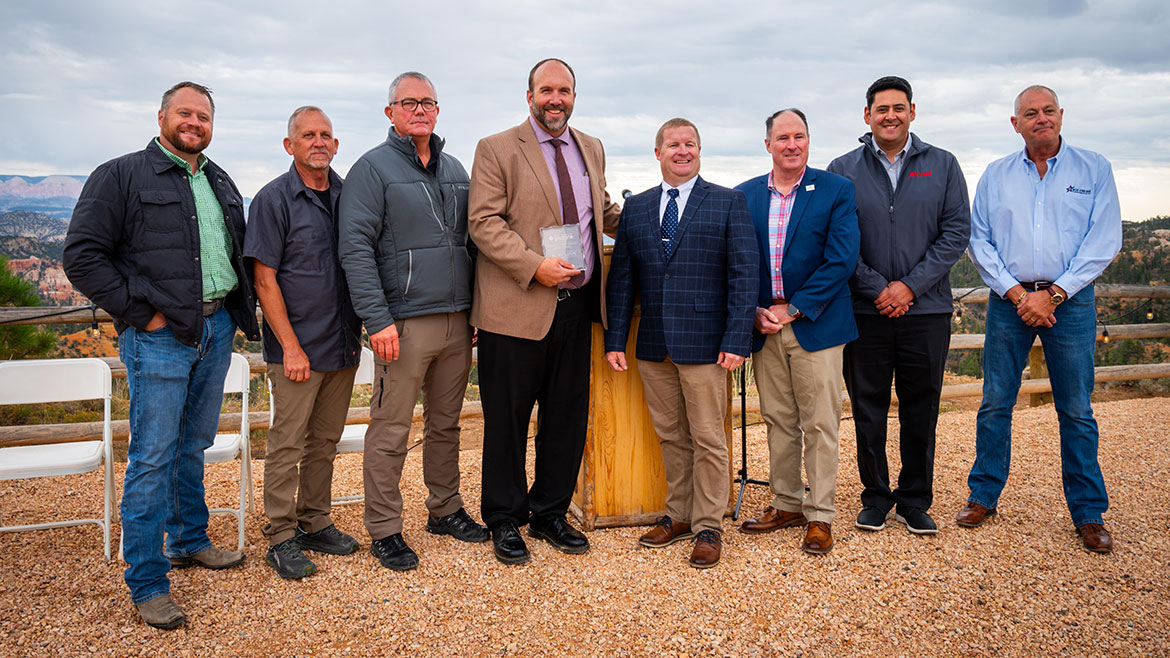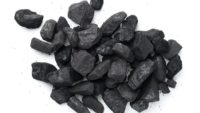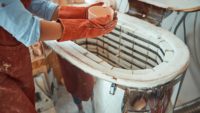PERC (Propane Education & Research Council) presented Lance Syrett, general manager of Ruby's Inn with its national Energy for Everyone Hero Award for environmental stewardship. Syrett is the great-grandson of Reuben (Ruby) and Minnie Syrett who were true pioneers. Ruby was working in nearby mills, but he and Minnie decided to go forth and homestead lands in 1916. A cousin visited the Syretts after they had settled in and asked if they had visited nearby Bryce Canyon. They had not, so off they ventured and their first view was from Sunset Point. Before long, word spread and visitors began arriving to take in the spectacular hoodoos and canyon. Ruby and Minnie brought cots for them along with food, and so began their future of hosting visitors to Bryce Canyon.
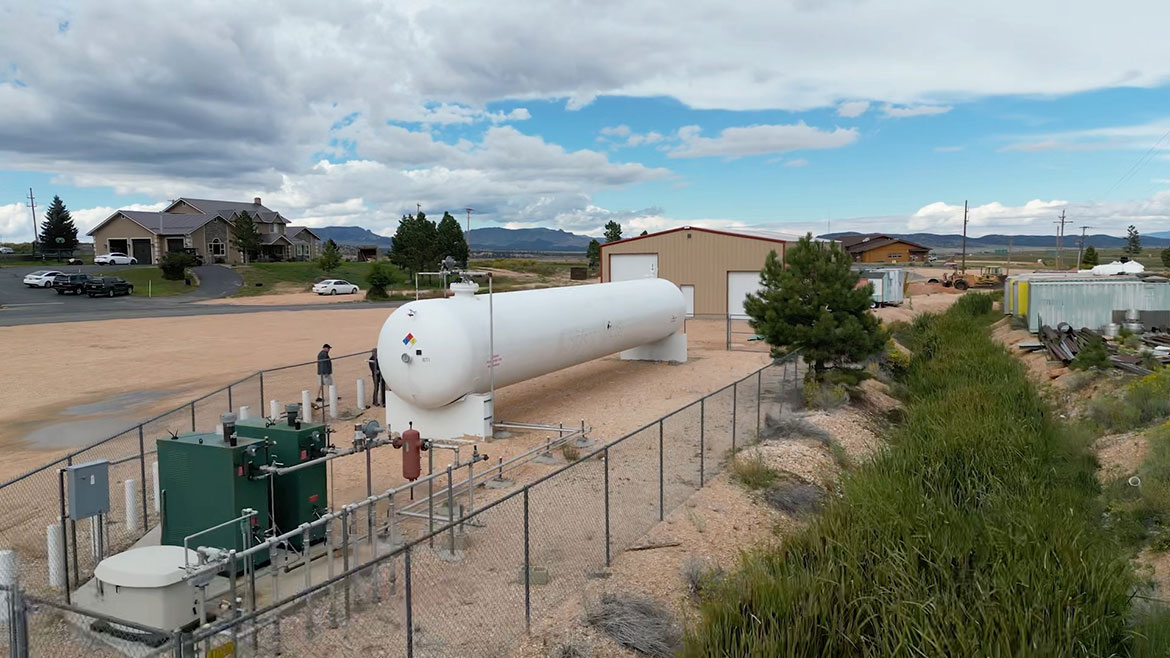
The Syretts built a log structure called Tourists Rest in 1919 to house and feed guests a short distance from Sunset Point. Bathing in hot water was less demanding, and the "bathtub" was fashioned from a hollowed-out tree trunk! The Syretts, along with many others, wrote to the government requesting they designate Bryce Canyon a National Park, which it was in 1923. The Park Service kicked the Syretts out of the Bryce Canyon National Park and took their Tourists Rest compound. Undaunted by this setback, Syrett immediately began constructing Ruby's Inn on his ranch in the spot where it stands today. Being a very smart businessman, rather than go away bitter and angry, Ruby responded to the park's inquiry about where to construct the main entrance by offering them land he would donate. As a result, Ruby's Inn sits at the entrance to Bryce Canyon and tourists must pass through Ruby's Bryce Canyon City when entering or exiting the park.
Fast forward to today where Ruby's Inn has 19 buildings, 700 guest rooms, a large RV park and campgrounds with bathhouses that include showers, a carwash, coin-operated laundry, three restaurants, three heated pools with adjoining whirlpool soaking tubs and a laundry facility that handles 19- to 20-tons of laundry every day.
During peak tourism season, Ron Harris, health and safety director at Ruby's and local fire chief, noted: "We are often at capacity with 4,000 guests and as many as 12 tour busses can arrive at virtually the same time. The first thing those guests often do is seek out hot showers and we had a chronic problem of running out of hot water. We were giving away $60,000 annually in room discounts and refunds. For the first 25-years of my being here, that was an ongoing issue, but for the past five years, after installing the Rinnai tankless water heaters, we have not had one single complaint regarding hot water and zero refunds for running out of hot water."
Five years ago, Ruby's propane supplier, Blue Star Gas, met with Ron Harris and Karl Munford, chief engineer at Ruby's, to discuss the hot water issues and suggested Rinnai be contacted. Rinnai, in turn, dispatched Brian Watts and Carlos Rodriguez to survey the needs. Watts and Rodriguez brought in Michael Prayoonvech, an engineer, who developed a site-wide retrofit plan for resolving the hot water issues and provided a thick binder with the engineered plans. Not long afterward, a potable hot water boiler self-destructed, and Harris made an executive decision to move forward with that first building. He gave Munford the go-ahead to order the first Rinnai racked tankless water heaters, which were the commercial Rinnai C-199 97% efficiency modulating condensing models.
"We were able to install the Rinnai tankless racks while allowing the domestic hot water boilers to keep operating and when we were ready, the changeover only saw 1-hour's interruption of potable hot water service because we utilized ProPress fittings to minimize downtime," Munford says.
After four months, and zero complaints from guests regarding hot water, the management at Ruby's decided to move forward with the more than $750,000 project. That initial project included 35 rack systems with 175 propane-fired C 199 tankless water heaters and 4 duo hybrid tankless water heaters connected to large storage tanks. The duo hybrid units were utilized for the coin-operated laundry and car wash where sudden large demands for hot water exist. Following the successful implementation of the Rinnai tankless water heaters, Munford next replaced two large multi-million-Btu boilers with Lochinvar Crest modulating condensing boilers that have a 25:1 turndown ratio and 96.2% operating efficiency. Both the Rinnai and Lochinvar products feature Wi-Fi connectivity so that they can be remotely monitored and the controls also ensure equal run time for all of the units.
"We used to devote half of every work day to keeping our older less efficient water heaters and boilers up and running, but today, we can check on every piece of equipment in 20 minutes. That allows my 16-person crew to handle other maintenance and repairs, and there's always plenty to keep us busy." says Munford. "Redundancy allows us to schedule repairs at our convenience with no longer a need to respond at night, on weekends, or over holidays."
Following the Rinnai tankless water heater installations, propane usage was reduced by 7,000 gallons per month. After installing the two Lochinvar Crest boilers, propane usage fell by another 6,000 gallons for a total monthly reduction of 13,000 gallons.
Ruby's Inn is quite remote and the nearest natural gas available is 30 miles away. The electric grid cannot support electrification for their hot water needs, much less for heat pumps and it gets too cold at -40° F for heat pumps, and oil has a large carbon footprint unacceptable for the conservation efforts that are core to the values.
Lance Syrett explains, "We even tried solar, but our energy needs were greater than solar could provide. Propane, on the other hand, has lower carbon emissions than other energy sources."
Two main propane tanks are situated on the 2,300-acre grounds at Ruby's Inn. Propane-fired Algas. SDI model Q480V vaporizers keep up with demand by boosting vaporization rates for the two horizontal propane tanks.
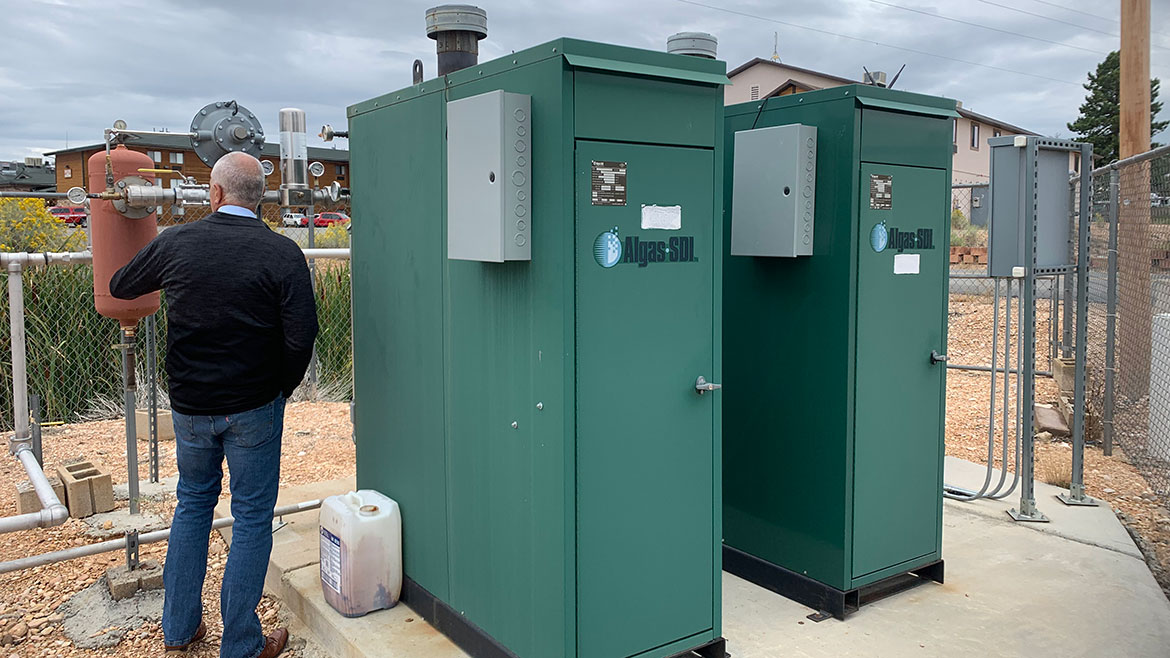
As for fuel consumption, Harris says: "We used to burn 425,000-gallons of propane annually, but now that has been reduced to 380,000 gallons each year. That in spite of the fact that we added snowmelt to our sidewalks and patio areas to enhance visitor and guest safety as well as eliminate the use of harsh chemicals for melting snow and the damage to landscaping."
Jim Bunsey, director of commercial business development with PERC, touched on the subject of renewable propane and how the existing infrastructure at Ruby's would not need any changes to begin blending renewable propane into their propane storage tanks, which will aid in Ruby's path to zero carbon emissions.
I asked Lance Syrett what it was like growing up in the family business and what his first job was at Ruby's. "My first assigned job, at age five, was to pick up cigarette butts. I wasn't paid cash, but probably got paid in ice cream. My first paid job? I was eight years old, it was Christmas day, we have a big family brunch, one of the dishwashers didn't show up for work and dad asked me if I wanted to make some money. I made $3.50 an hour, worked an eight hour shift, felt like the richest guy ever and couldn't believe people got paid this much. After that, I worked in the food service and while I was in college, I worked for my brother in the western activities doing horseback rides, got my degree in finance and economics and was going off to law school, my wife was pregnant and she said let's take a year off, came back here so we could pay off some bills, and I'm still here on break! We have three children, our son is the fiddle player you saw during dinner last night and the middle daughter works here in food service. Our youngest daughter will start working here once she's old enough."
The well water for Ruby's Inn comes from three wells that house four pumps. It has no need to be filtered or treated, so what comes out of the ground is what comes out of the faucets. It is tested regularly. It is, however, hard water at 28 grains, so that means tankless water heater heat exchangers will need to be periodically cleaned of minerals that precipitate when water is heated and coats the inner walls of the heat exchangers. Munford indicated they have a dedicated program (no surprise as he has regimented maintenance programs for just about everything) for cleaning the tankless heat exchangers: every three months for ones providing hot water to the commercial kitchens; and every six months for all other tankless water heaters. I had to ask: What temperature does your domestic potable hot water system use throughout the numerous guest rooms? Munford said the return is never allowed to fall below 122° F and Harris told us that Ruby's has long had a Legionella protocol in place and has never once had a case of Legionnaire's Disease.
Rinnai has provided ongoing Level-3 training for Munford and his crew who say, "There's always something new we learn." Munford maintains a full inventory of spare parts including complete new tankless units to cover any eventuality that arises. Being in the middle of nowhere means the operations at Ruby's Inn must be ruggedly independent and self-reliant.
